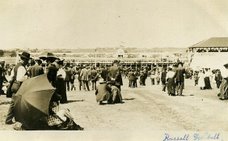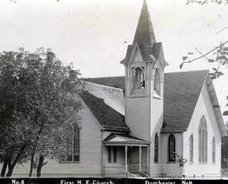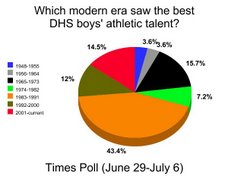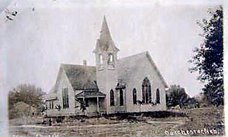 Note: The Times ran this story nearly three years ago in October 2019. Today, we revisit this article as a reminder that town leaders can make progress in addressing run-down properties.
Note: The Times ran this story nearly three years ago in October 2019. Today, we revisit this article as a reminder that town leaders can make progress in addressing run-down properties.----------------------
Small town residents across Nebraska for years have complained about vacant and neglected properties -- only to be told by lawyers or judges there is little the law allows town officials to do about addressing the problem.
Under LB 256 -- also known as the Vacant Property Registration Act -- municipalities have the authority to enact "vacant property registration ordinances" to identify and register vacant properties, collect fees to compensate for the public costs of property vacancy, plan for the rehabilitation of vacant properties, and encourage the occupancy of such properties.
Now, thanks to a recent state law, both residential and commercial property owners who have vacant and neglected properties will have to pay a lot more to keep them. And Dorchester is leading the way in implementing this policy change.
As we reported last year, the Nebraska Unicameral recently passed and the governor signed Legislative Bill 256, a bill to crack down on vacant properties. The bill passed 47-0 and provides communities a real tool to address neglected property challenges.
Under LB 256 -- also known as the Vacant Property Registration Act -- municipalities have the authority to enact "vacant property registration ordinances" to identify and register vacant properties, collect fees to compensate for the public costs of property vacancy, plan for the rehabilitation of vacant properties, and encourage the occupancy of such properties.
To our knowledge, and based on our research, Dorchester is the first village in Nebraska to do this -- demonstrating great leadership and courage by town leaders. We congratulate all of them. (For years, we advocated for such a move.)
Essentially, Dorchester's ordinance does the following:
- Creates a list of vacant properties. Properties (both residential and commercial) are considered vacant if conditions would lead anyone with common sense to believe the property is vacant. This includes overgrown vegetation; accumulation of trash or other waste; visible deterioration or lack of maintenance; graffiti or other defacement.
- Requires the property owner to submit a plan for occupancy for the property, detailing how and when the property will be occupied or used. This will be done when the property owner registers the property as "vacant," which must be done if the property has been vacant for more than six months (180 days).
- Allows the Village to impose a $250 "vacancy registration fee" for homes and a $1,000 fee for commercial buildings one year after the property becomes vacant -- or 180 days after the initial registration of the vacant property.
- After the assessment of the initial fee, the owner of the property must pay an additional "supplemental registration fee" of $500 for a vacant residential building or $2,000 for an vacant commercial building every six months. (The total supplemental fee cannot exceed 10 time the initial fee amount.)
- An owner who makes an honest attempt to sale or rent the property is exempt from the registration and fee requirements. Exemptions also apply to those who occupy the home seasonally; have had their property damaged by fire, weather or vandalism withing the past six months; are undergoing construction or renovation on the property; have demonstrated they are likely to return to the property after a temporary absence; or the vacant property is subject to divorce, probate or estate proceedings.
We have done our best to summarize the ordinance. However, property owners interested in the new Dorchester ordinance will need to read it in full by obtaining a copy from Village Hall.


















































Good work Dorchester board members. Just remember these two quotes:
ReplyDeleteWeak leader/coward: "There go the people. I must follow them, for I am their leader."
-- ALEXANDRE LEDRU-ROLLIN, one of the leaders of the February Revolution of 1848 in France.
Strong leader: “Leaders have the courage to make unpopular decisions and gut calls.”
-- Jack Welch, former CEO of General Electric
Hmmmm... another rich man's law to make the poor poorer.
ReplyDeleteThis is the most asinine comment. Who are these "poor" when they have unused vacant property sitting around? Who else can afford such a luxery? And when did being poor equate to being a slob? I'm laughing right now to stop from crying.
DeleteLooks like they need to feed the fire. A few really bad places that are not getting any better. Enforce it equally and please get some of these areas cleaned up!
ReplyDelete